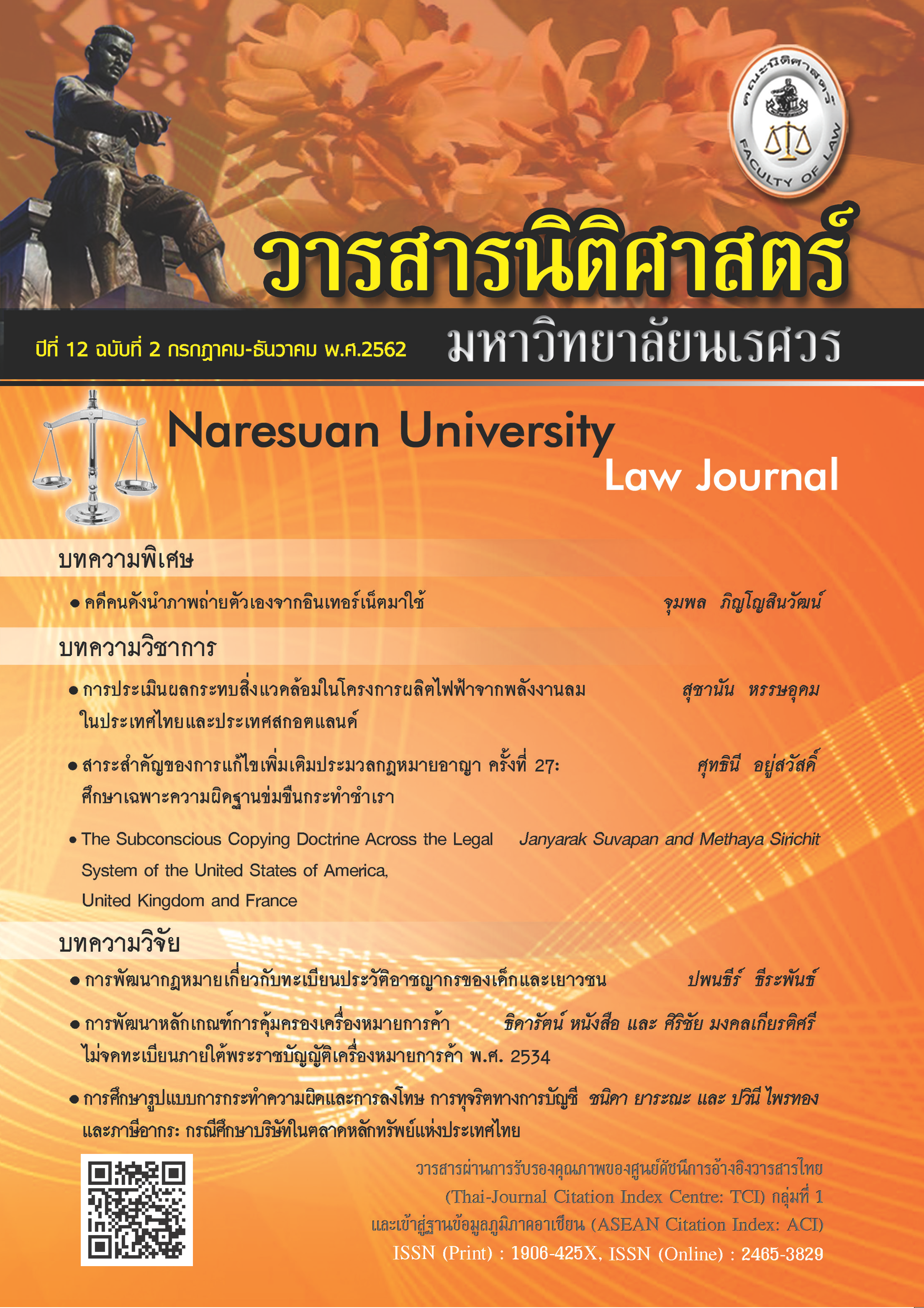An Approach to Development of Law Concerning Criminal Record of Child and Juvenile
Main Article Content
Abstract
This research has three objectives as (1) to study the concepts and the theories of juvenile justice, rehabilitation, labelling and criminal record, as well as to compare the laws concerning criminal records of Thailand and foreign countries, (2) to study and analyze both the legal and the social problems affecting to children and juveniles caused by the law concerning Thai criminal records, as well as to study and analyze the employment opportunity in business sectors, and (3) to seek the suggestion in order to develop criminal records law in accordance with Convention on the Rights of the Child and under the purposes of the juvenile justice.
The information in the research was acquired by analyzing documents and in-depth interviewing of three groups of key informants, (1) the authorized government officers in juvenile justice system, (2) the children and juveniles who have been affected by criminal record, and (3) the business owners who has gained the employment power. The qualitative data studied and analyzed from the documents and the in-depth interview was analyzed for the contents and reflected relations by using the descriptive aspects.
The findings revealed that the law concerning the criminal record in Thailand, Royal Thai Police Regulation on Police Code not concerning the Criminal Case Title 32 Fingerprint, has caused four legal problems. First is the problem about the form of the law concerning the criminal record. Secord is the problem about the element of the criminal record classifying. Third is the problem about the person who will have the right to make a petition for the criminal record classifying. And last is the problem about the starting time for the criminal record classifying process. These problems have subsequently resulted in the social problems consisting of the effect on job employment and work, education enrollment and study, and labeling reflection by the societies.
To develop the law concerning juvenile criminal record in Thailand, this research suggests that the law should be enacted by the legislative, the court judgment under the section 142 (1) Juvenile and Family Court and Procedure Act B.E. 2553 should be one of the elements in criminal record classification, the name of the child or the juvenile should be authorized to make their petition of classifying, and the starting time for the criminal record classification process should clearly be written by the law.
Article Details
References
House of Commons Justice Committee. Disclosure of Youth Criminal Records: First Report of Session 2017–19. London: House of Commons, 2017.
Information Management and Operational Requirements Coordination Committee. Deletion of Records from National Police Systems. (PNC/NDNAD/IDENT1) Version 2. London: National Police Chiefs’ Council, 2018.
Kanchanok Saenghaengtham. “Sorting of Juvenile Offenders’ Criminal Record.” Master’ thesis, Faculty of Law, Dhurakijpundit University, 2015. [In Thai]
Pokpong Srisanit. “Criminal Record Reformation and Appropriate Punishment Determination Concept for Offender.” The 16th National Symposium on Justice Administration: Justice System Development, Reducing Inequality, Leading Justice to Public, Royal Jubilee Impact Muang Thong Thani, August 2-3 2018. [In Thai]
The Official Information Commission. “The Official Information Commission Decision on Society Government Administration and Law Enforcement, No. SK 32/2548 Administrative Orders Appealing on Information concerning Criminal Record.” March 15, 2005. [In Thai]


